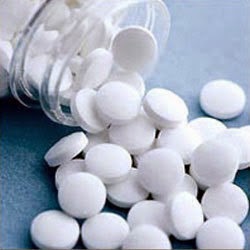Both OCD and ADD/ADHD are mental illnesses that presume the fact of abnormal functioning of some parts of the brain. It means the person looks normal, acts mostly normal, can lead a normal life, but with some deviations caused by the symptoms created by these diseases.
Since we are not talking about an injury, or a type of traditional disease, OCD and ADD/ADHD cannot be treated completely. Anyone who is suffering from any of these two illnesses will have to carry it around for the rest of their lives.
What treatment does is to reduce the way the symptoms are affecting the quality of life.
So, with proper medical guidance, you can have an ordinary life.
You should know that you are not the only one affected by one of these diseases.
There are a significant number of patients out there that learn to cope with OCD or ADD/ADHD, and fight for a happy life. Even though the situation may seem hopeless, you should be aware that there are plenty of solutions that will help you out.
Treatment approaches for ADD/ADHD
Sometimes, medication is not necessary to lead a healthy life in the case of ADD/ADHD. Any action you are making, with the purpose of diminishing the symptoms of the disease are considered to be the treatment.
Most drugs prescribed for ADD/ADHD patients regard the improvement of attention and concentration. But other symptoms like hyperactivity, disorganization, forgetfulness or procrastination are not being solved.
All of these can be managed by using other alternative methods that have an excellent result in controlling the symptoms caused by ADD/ADHD.
If the doctor does prescribe you medication, your evolution under the treatment should be permanently monitored.
You need to do this to make sure that improvements are showing up, there are no side effects, and you feel fine.
All medical treatments should be accompanied by alternative ones, in order to have the best effect.
There are certain exercises and rules to follow if you want to improve your concentration levels. You do not necessarily need a treatment based on drugs for that.
In addition, if you include in your daily program a physical exercise session, it will prove to be very effective in relieving the symptoms, increase your mood, and help you with focusing and memory.
A healthy life means a healthy diet. Believe it or not, a well-balanced diet will help you in improving your general health state and manage easier your ADD/ADHD symptoms. Multivitamins, including zinc, iron and magnesium should be present in your diet.
Fewer proteins and carbohydrates, but an added content of omega-3 fatty acids.
Last, but not least, enjoy a good night’s sleep and relaxation methods, like yoga and meditation.
OCD treatment overview
OCD has worse symptoms than ADD/ADHD since an OCD patient will always feel anxious and stressed out due to the constant obsession popping into his head. Aggravated forms of the disease do need drug treatment, as the patient can end up harming himself or become completely isolated from the rest of the community.
Unfortunately, if the OCD does not receive a proper medical approach, you risk developing more severe symptoms. So leave any embarrassment aside and seek a specialized medical support.
If the illness is in the first phase, the doctor may prescribe only counseling, to help you reduce the symptoms. If necessary, according to your overall condition, antidepressants may be added to the treatment.
Counseling can do wonders since it treats the issue of your behaviors caused by the obsessions and compulsions. Your evolution will regularly be monitored and changed, according to how you respond to the treatment or if the doctor considers it necessary.
Also, if you receive antidepressants, your state will also be monitored by the currant physician, to make sure you have the proper response to the prescribed medication.
No matter how hard the situation may be for you, do not try to stop counseling sessions or to avoid taking your medicine. In all of these cases, patients experienced a comeback of all the previous symptoms.
Read Also:
– The Difference Between OCD and ADHD
– OCD and ADHD, a Suspicious Link
– ADD/ADHD and Depression




